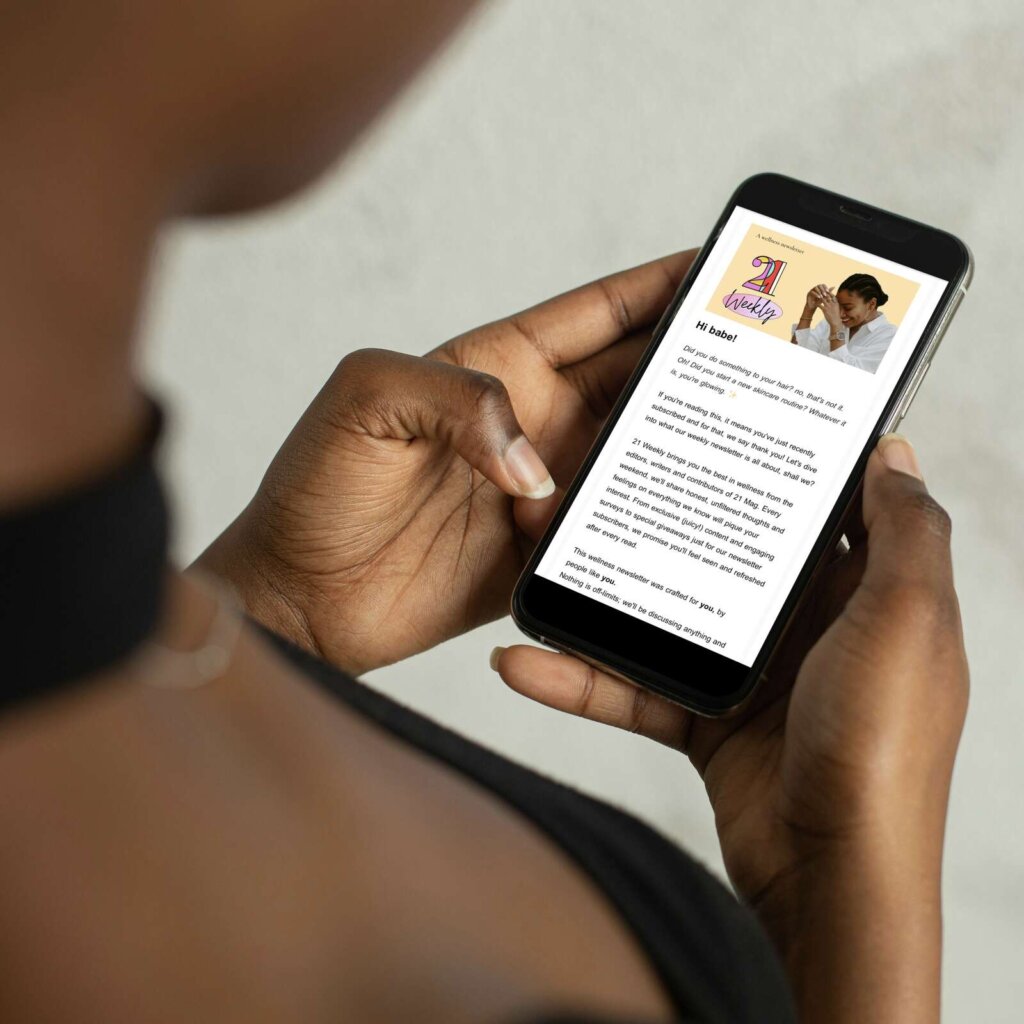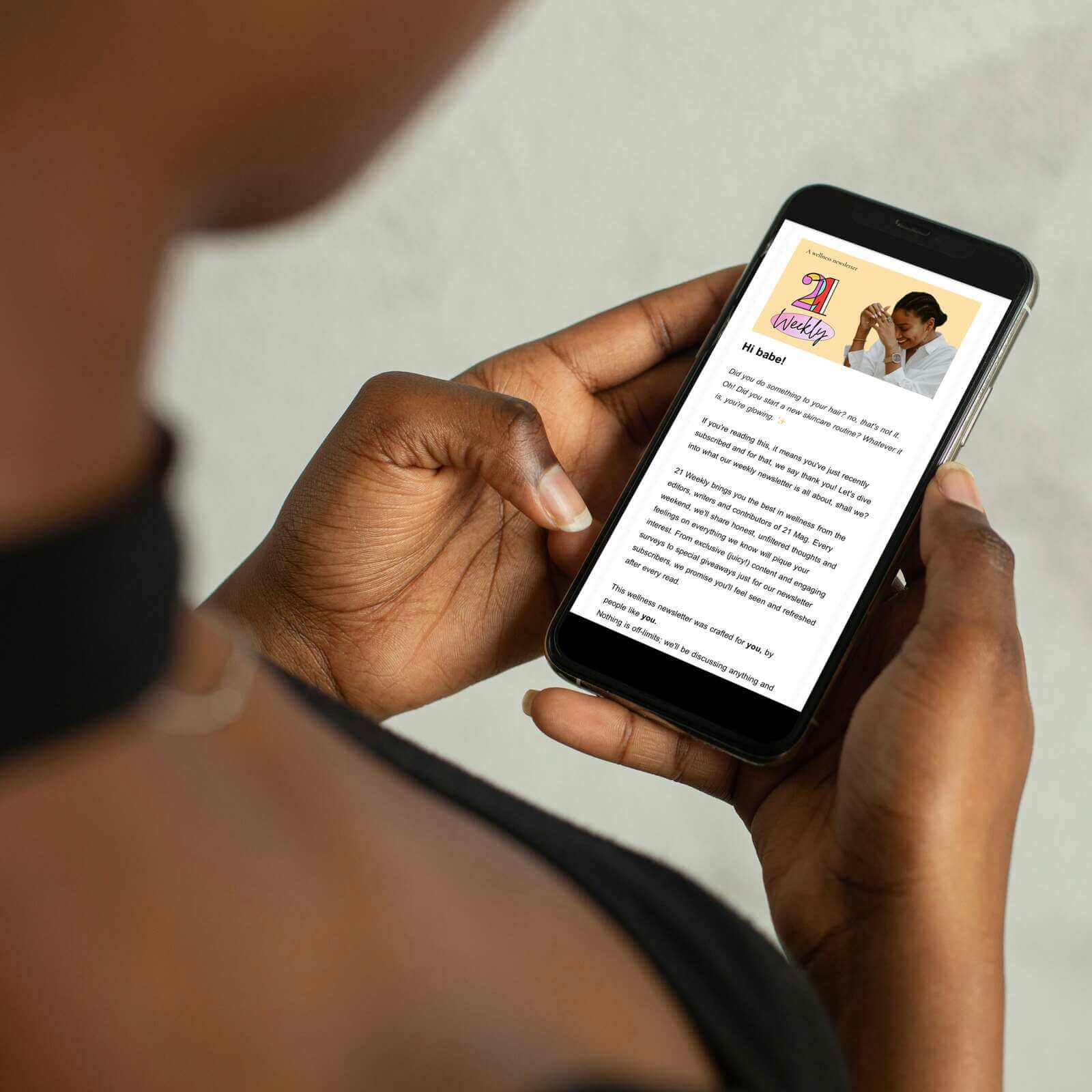No products in the cart.
Are You a People Pleaser? Here’s a Guide to Overcoming it
Occasionally, we put our needs, feelings and desires aside for the sake of others. You might agree to a last-minute request from a friend to be her plus one for a party at a time you really needed to rest from the day’s work, or you may back up the opinion or preferences of someone you don’t wholly agree with, just because you don’t want to engage in conflict. There’s nothing inherently wrong with being nice or kind to someone else, but when you find yourself constantly being agreeable and appeasing others, especially at your detriment, you might just be a people pleaser.
People pleasing is a dangerous cycle. While others may view you as this kind, amazing person who always comes through for them, they don’t get to see that you’re always and consistently deprioritizing your needs so that you can prioritize the needs of others, way way ahead of yours. Self-neglect in this manner, will always come at a cost. You may begin to feel resentful towards people who don’t mind choosing themselves when all is said and done. Remember those times a person you overextended yourself for, didn’t return the favour? And maybe you reminded them of your consistent kindness in the past and they replied by saying something along the lines of, “Well, I didn’t force you” Painful, right? Well, they technically didn’t force you.
People-pleasing tendencies may also burn you out quickly. I mean, what do you expect when you’re a yes-man to everyone around you? What do you expect when you’re always taking the blame for things that aren’t your fault? What do you expect when you neglect your mental health trying to prioritize the well-being of others? People-pleasing may also weaken your relationship with the people you care about, because when you’re over-invested in earning their approval, you struggle with being honest about your own feelings, and you end up consistently showing up as a half-baked version of who you truly are. Ultimately, you lose yourself and become one of those girls who lack personality—what do you expect when who you are is based on who you’re with at that moment? Tragic.
Recognizing the negative impacts of people-pleasing is the first step in changing this habit. It is crucial you find a balance between being kind to others and taking care of your needs. Make peace with the fact that not everyone will like you. You sef. is it everybody that you like?
As a retired people-pleaser, I compiled 5 ways I learnt how to put myself first (because if I don’t, who will?). One thing I’ve learnt as I get older is that many people will take and take from you with zero conscience- if you give them the chance. The power is in your hands, it always has been.
Set Healthy Boundaries
It’s essential you communicate your boundaries to the people around you. Sit with yourself and consider the things you are willing to do as well as the things you’re comfortable doing and those things you’re neither willing nor comfortable doing anymore. Even when people push your boundaries (because I tell you, the people who are convinced that they wield your mumu button will try), stick with these boundaries by reminding yourself the reason you set them in the first place.
From experience, I can tell you that it will be uncomfortable at first. When you’re transitioning from being a people pleaser into someone with more boundaries it can feel so weird and it’s hard to tell if you’re being mean or if you’re just respecting your own feelings because you’re so used to putting other people’s feelings first. But as time passes, setting boundaries with conviction will enable you to regain your self-autonomy and confidence, and all the validation you need (or most of it), will come from within.
Be aware though, setting boundaries will make you lose some connections, especially with people whom you never used to say “No” to before. They will be shocked. You’ll hear all variations of “She has changed”, meanwhile all you’ve done is stop being a pushover. Nevertheless, those who have your best interest at heart will come to understand and respect your boundaries.
Prioritize Your Needs
A lot of people pleasers have personal goals but deprioritize them so that they can assist others in reaching theirs. Take time to reacquaint yourself with what’s important to you. Talk to a trusted friend whom you’ve told about your plans, jot down your personal and professional goals, or write a simple daily to-do list. This should help you get a clearer view of your needs.
By shifting your focus in this way, you will be more inclined to refuse requests that don’t align with the plans you have set for yourself. For instance, if you run a blog but find yourself procrastinating on putting out content because you’re always busy helping someone do something, schedule regular time for content creation and treat it as a non-negotiable appointment, the same way you will view a scheduled meeting with someone else. The most important thing to consider is, when you’re saying “Yes” to people, are you saying “No” to yourself?
Never taking time for yourself because you’re too busy doing things for others is the quickest route to burnout and resentment.
Stop Over-Apologizing, Especially When it isn’t Your Fault
Apologizing and taking accountability for things that aren’t your fault is a disservice to yourself. You must accept that there will be situations that are outside your control and that it’s not your job to try and control such situations. Doing that will only give you unnecessary anxiety and heartache.
A common people-pleasing trait is constantly picking up on any slight form of micro-aggressions or negative feelings directed to you by someone else. What follows is that even without that person directly saying that you did something wrong, you jump to conclusions and assume you’re the reason they didn’t smile all through their interaction with you, or you must have done something for them not to talk to you like they normally would. Why do you think you’re responsible for someone else’s disappointment, sadness or anger? And why are you even trying to fix it so much so that you’re tossing and turning in bed at night? Resist that persistent urge to spark up the conversation with that person, on whether or not you did something wrong (especially when you’re true to yourself that you’ve done nothing wrong). Let the person open their mouth, and if they choose silence, choose silence as well, and move on with your life. This is not to say you shouldn’t pick up on shifts in energy during interactions with close friends, and address them to clear the air. This is me saying, it’s not your job to do that all the time. Please, free yourself.
Constantly saying sorry underpins the notion that your feelings and ideas are less important than the feelings and ideas of others.
Go Easy on Yourself
Rome wasn’t built in a day. As you practice diminishing the amount of validation you seek from others, be gentle with yourself. It isn’t going to be an easy or short journey, so aim for continuous self-improvement instead of a complete overhaul. There will be times you will slip up but know you have a lifetime of interactions to wholly understand what healthy self-love, self-respect and self-esteem should look like.
Your decision to stop people-pleasing will come with so many uncomfortable feelings *surprise surprise*. Some are: overthinking that people will think you’re a bad person for turning them down, guilt for putting yourself first and feelings of unsettlement going without affirmation and validation. Be gentle with yourself when these feelings come. Little by little, you will build up your confidence in communicating your own needs and desires, and those feelings will fade away.

Pro tip, you must consider your capacity when it comes to helping others. When you get a request to do something for someone, you don’t need to reply immediately. It’s okay to delay. Ask them for time to think about the request, assess how that fits into your plans and respond accordingly. Additionally, when you answer that call, let the other person know you’re on your way out the door. When you set up a meeting, let the other person know you have to be home by a certain time.
Seek Help
Asking for help is an important step to overcoming people-pleasing. Ask the people who are close to you for feedback on how often they see you doing the most. You can also ask your friends and family with bold and assertive personalities to lend helpful perspectives on self-confidence. You’ll be surprised to find out that it isn’t as daunting as you think. In fact, it’s energizing and liberating.
It’s also essential you do some inner work by identifying what triggers your people-pleasing tendencies. Does it happen during interactions with certain people? Or maybe it lights up when you sense a conflict brewing and you just don’t want to deal with confrontation? As soon as you understand what makes you people please, and when you’re most likely to people-please, you can pinpoint the kind of support you will need, whether it’s from family, friends or even a therapist.















